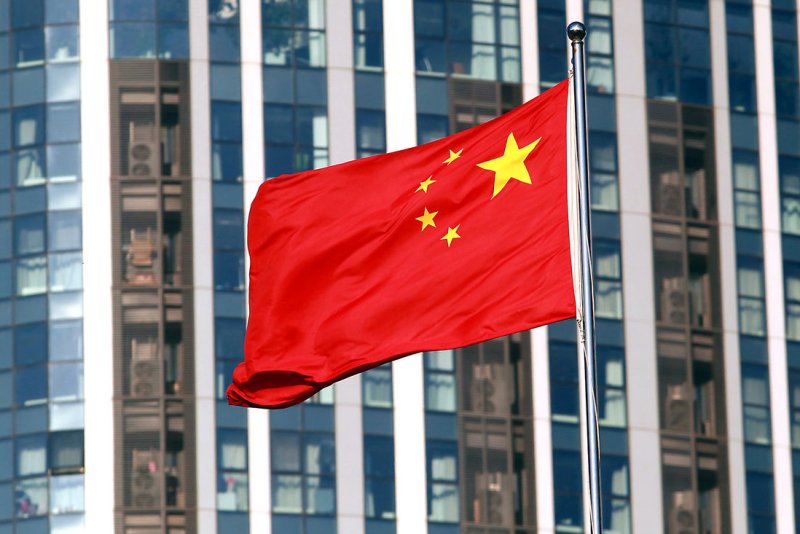A column in the official news agency of China takes a critical stance on U.S. President Donald Trump's focus on fossil fuels. Photo by Stephen Shaver/UPI |
License Photo
Decoupling the U.S. economy from the renewable energy sector might not work as designed, a column in China's official Xinhua News Agency read.
U.S. President Donald Trump put the fossil fuels industry at the forefront of his economic agenda, nominating several key oil and gas figures to top Cabinet positions.
"President Trump is committed to eliminating harmful and unnecessary policies such as the Climate Action Plan and the Waters of the U.S. rule," a White House policy statement read. "Lifting these restrictions will greatly help American workers, increasing wages by more than $30 billion over the next seven years."
Xinhua cited several clean-energy policy advocates and government advisors who were critical of Trump's emphasis on fossil fuels. Julia King, a climate advisor for the British government, was quoted as saying Trump's economic policies are more aligned with a 1950s-era mentality that one for 2050.
Deborah Seligsohn, a climate policy expert at the University of California-San Diego, told China's official news agency that clean-energy stewardship has shifted.
"Obviously the U.S. partners in the world need to be prepared to speak up for what they believe is necessary and to press the U.S. to meet its commitments," she said.
Former President Barack Obama and Chinese President Xi Jinping agreed last year to collaborate on climate change by signing agreements outlined in the Paris deal, a deal Trump has vowed to abandon.
Xinhua's column follows a report from consultant group Frost & Sullivan that found economies in Asia would accelerate faster on the clean-energy front than their U.S. counterparts. Beijing last year issued a developmental white paper that outlined the approach to development under the guidance of the Communist Party of China, saying China is "committed to the concept of environment-friendly development."
The paper stated that China has been at the forefront of the effort to infuse environmental protection with state policy, becoming the first country in the world to offer a sustainable development strategy in the 1990s.
Last week, companies from China and Cuba signed a handful of agreements aimed at strengthening cooperation in the renewable energy field. Gu Chengkui, an expert from China's Center for Information Industry Development, said Beijing could push deeper into the region to help Cuba grow responsibly.
"With the knowledge and experience of China, we can jointly promote and develop Cuba's renewable sector," he said.
Trump pledged to unravel Obama's efforts to improve ties with Cuba while at the same time rattling sabers with China over Taiwan.















